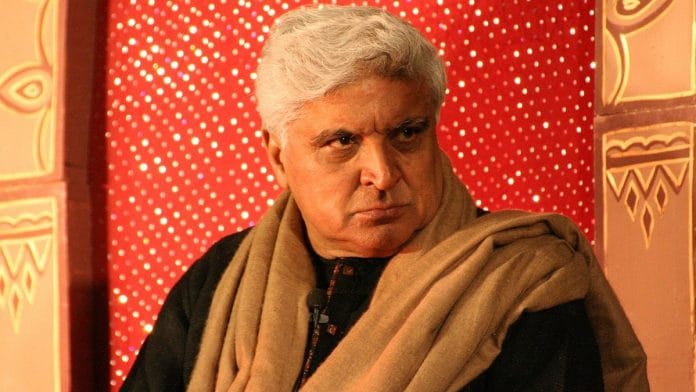Javed Akhtar is not a name that needs introduction in India. Celebrated for his contribution to Hindi cinema and admired for his fearless views and open atheism, he has offended the right wing in all its shades. But it took an Islamist threat to push him off stage. Angry objections from the Jamiat Ulema-e-Hind led the state-run West Bengal Urdu Academy to cancel a Kolkata festival where he was to speak—a reminder of how fragile the idea of free speech has become in India.
It’s not as if Javed Akhtar is facing such backlash for the first time. A quick scroll through X will show the endless abuse and trolling that comes his way. Nor is he the first voice to be silenced by Islamists—Salman Rushdie is perhaps the most famous example. But let’s be honest, it’s not just about Islamists. In India today, it doesn’t take much to cancel or threaten someone into silence. From comedians like Kunal Kamra and Samay Raina to podcasters like Ranveer Allahbadia, voices are routinely targeted, dragged, and pressured. The pattern is the same: speech that offends someone, anyone, quickly becomes grounds for outrage, and outrage soon becomes a weapon to shut down the speaker altogether.
Silencing someone is about power, about deciding who gets to speak and who doesn’t. Outrage becomes a convenient excuse, a mask to hide the simple truth that controlling speech is controlling thought. When Javed Akhtar is dropped from a festival, or when comedians are booked for “hurting sentiments”, it’s not just one voice that is attacked. It is a signal to everyone else: speak carefully, stay within the lines, or risk being next. And slowly, a society that once prided itself on debate and disagreement begins to lose the very air of free thought.
But what makes this episode stand out is where it happened—Kolkata—and who backed down: the West Bengal Urdu Academy, an institution with no direct ties to Islam.
Also Read: Saudi Arabia is changing. It can shape the future of Muslim world
Mamata’s free speech test
Normally, debates about curbing freedom of speech are framed as the work of an authoritarian government. But here, the government in question is led by Mamata Banerjee, who repeatedly claims that sovereignty, secularism, and pluralism are the main pillars of Indian democracy. And yet, when a test of those very principles came—defending freedom of expression—her government faltered.
If those who proudly wear the mantle of progressivism and secularism cannot uphold one of its most vital tenets, what hope is there for the others? And sadly, this isn’t just indifference—it’s a pattern.
The Bengal Chief Minister, who positions herself as a fighter against the so-called “fascist” Modi government, presides over a state where free expression can still be punished. Ambikesh Mahapatra, an Indian academic at Jadavpur University’s Chemistry Department, knows this all too well. In 2012, he was arrested for sharing a satirical cartoon about Mamata Banerjee, setting off a legal battle that dragged on for over 10 years until his acquittal.
And that’s the real problem. Do we have any authority, any government, truly committed to progressive and secular principles? It seems not.
Also Read: Why families keep killing wives, daughters—a silenced woman preserves honour
Appeasing hardliners is not pro-Muslim
Even those parties that wear the label of secular and progressive often bow to the pressures of fundamentalist groups within the Muslim community.
Activist Shabnam Hashmi captured this sharply: “This is just the beginning. I have been shouting from the rooftop, telling my fellow senior activists and the young ones to stop legitimising platforms run by the Muslim right. I have been systematically pushed to a corner within Delhi civil society because I refused to share platforms with Muslim right-wing organisations, while a large number of senior activists fool themselves in the name of fighting majoritarian politics,” she said.
Her words reveal a deeper, uncomfortable truth: the fight for secularism and free expression in India is constantly compromised, not just by the overtly authoritarian, but also by those who claim to be its defenders.
Incidents like this only give credibility to the narrative that political parties care more about vote banks than principles. And when they speak about secularism, it doesn’t mean fair treatment for minorities, especially Muslims. What it often means instead is appeasing the most hardline elements within the community to secure votes. And yet, it isn’t as if the BJP government has been a consistent champion of freedom of expression either—there are enough examples to prove otherwise.
Who, then, is left to genuinely stand for these principles? The result is a vacuum, where free speech, secularism, and progressive values are constantly compromised, whichever party is in power.
Javed Akhtar’s presence as the reason for scrapping the Kolkata Urdu festival is not an isolated lapse. It is a mirror held up to this very vacuum. Here is a man whose work and voice have challenged every orthodoxy, yet he is silenced, and the very institutions and leaders that claim to uphold secularism and pluralism didn’t intervene.
Akhtar’s silencing reveals how free speech is negotiable, secularism is conditional, and principles are sacrificed at the altar of power.
Let this episode remind us that in India, the defence of rights and principles cannot be left to politics, promises, or convenient labels. Civil society must not remain a bystander while fear dictates what can or cannot be said. Staying silent in the face of intimidation is complicity, and legitimising platforms that bow to fundamentalist pressure only strengthens the cycle. If we truly want a healthy democracy, it is up to us—the citizens, thinkers, and activists—to draw the line, speak out, and defend the space for free expression.
Amana Begam Ansari is a columnist, writer, and TV news panellist. She runs a weekly YouTube show called ‘India This Week by Amana and Khalid’. She tweets @Amana_Ansari. Views are personal.
(Edited by Asavari Singh)






